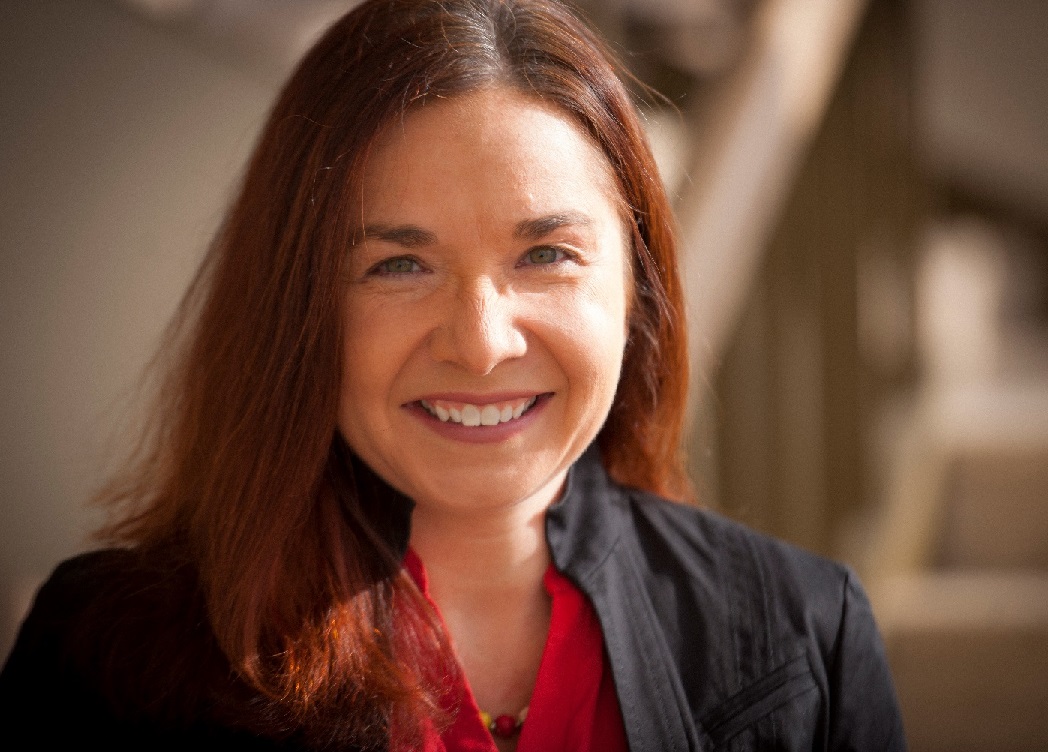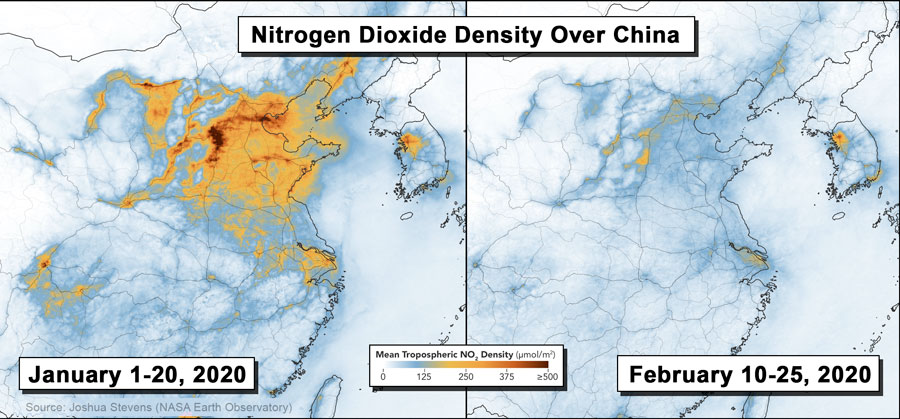Is COVID-19 Helping the Environment? The Answer is Complicated
By: Karen Michael
One might expect a leading climate scientist to be enthusiastic about a drastic reduction in industrial production and transportation.
One would be wrong.
The benefits of seeing clean, blue skies and clear water and of breathing cleaner air in parts of the world where those things seem a distant memory are really pretty minor compared to the economic and health-related impacts of the Coronavirus pandemic, according to Texas Tech Professor Katharine Hayhoe. And they weren't achieved by changes that are sustainable long-term, as climate solutions require. Hayhoe is one of the world's leading climate scientists and has won international awards for her ability to communicate about the dangers of climate change.

“Our main concern as a society right now is, number one, overcoming the pandemic—as it should be. And then, number two, restoring economic production. So while I certainly hope we will realize there are healthier and less healthy ways to do so, I'm not so sure that's going to be a priority for many decision-makers at this time,” Hayhoe said, referring to the possibility of growing the clean energy economy.
Hayhoe said there are few connections between the Coronavirus and climate change.
The biggest commonalities that the two disasters – one current and the other pending – share is that both affect our health and the health of our loved ones and community, as well as the economy.
“Those are the exact same things that climate change ultimately affects,” Hayhoe said of the effects of COVID-19.
Humans are encroaching into wild areas and reducing wildlife habitat, which has increased the risk of zoonosis, or the process through which viruses jump from animals to humans, she said. That's not climate change, she said, but human choices.
“In terms of a changing climate, we know that it is already affecting the severity and the spread of influenza-like diseases, in some cases bringing us milder (flu) seasons. But then, what happens after you've had a milder season of influenza is that you have a much stronger season the next year after that because our herd immunity is down,” Hayhoe said.
As industrial production and transportation have been significantly reduced, people around the world have marveled at how the environment and wildlife have flourished as the humans stay home.

“But what's going to happen after this passes is, our industrial production's going to ramp back up again – as it needs to, in order to restore the economy! – and unfortunately, because so much of that industrial production is still powered by fossil fuels rather than clean energy, because of that, we're going to see our air quality go right back to where it used to be. And our carbon emissions, which have dropped significantly in the last few months, they're going to rise right back up again, too,” Hayhoe said.
Respiratory diseases like Coronavirus can be exacerbated in areas where people are living with poor air quality, Hayhoe said, noting that a 2003 study on SARS showed that people in those areas were twice as likely to die from the SARS virus than people in areas with better air quality. A recent Harvard study linked long-term exposure to poor air quality with increased vulnerability to COVID-19 as well.
“Outdoor pollution, which is primarily from fossil fuels, is a threat multiplier. In other words, it can make us more vulnerable to diseases and to viruses that affect our respiratory system, which is exactly what Coronavirus does,” Hayhoe said.
Like climate change, Coronavirus is hitting hardest on the most vulnerable people, in terms of health and the economy, Hayhoe said. She said she hopes that when people reflect on the lessons of the virus, they will realize that what really matters is the same to everyone: their own health and that of their loved ones. Like Coronavirus, she said climate change threatens the health and financial well-being of a lot of people.
The Texas Tech professor said she is hopeful that people will see that there is a human impact on the environment after they come out of quarantine, even as they work to restore the economy.
“Air pollution has been with us for centuries, so long that we've just gotten used to it. We just think that's the way it is. So today, we're actually seeing that no, that's not the way it is. That's the way we've made it,” Hayhoe said. “If there is a ray of hope, it is that we will recognize that there is a different way to live.”
Discoveries
-
Address
Texas Tech University, 2500 Broadway, Box 41075 Lubbock, TX 79409 -
Phone
806.742.3905 -
Email
vpr.communications@ttu.edu
